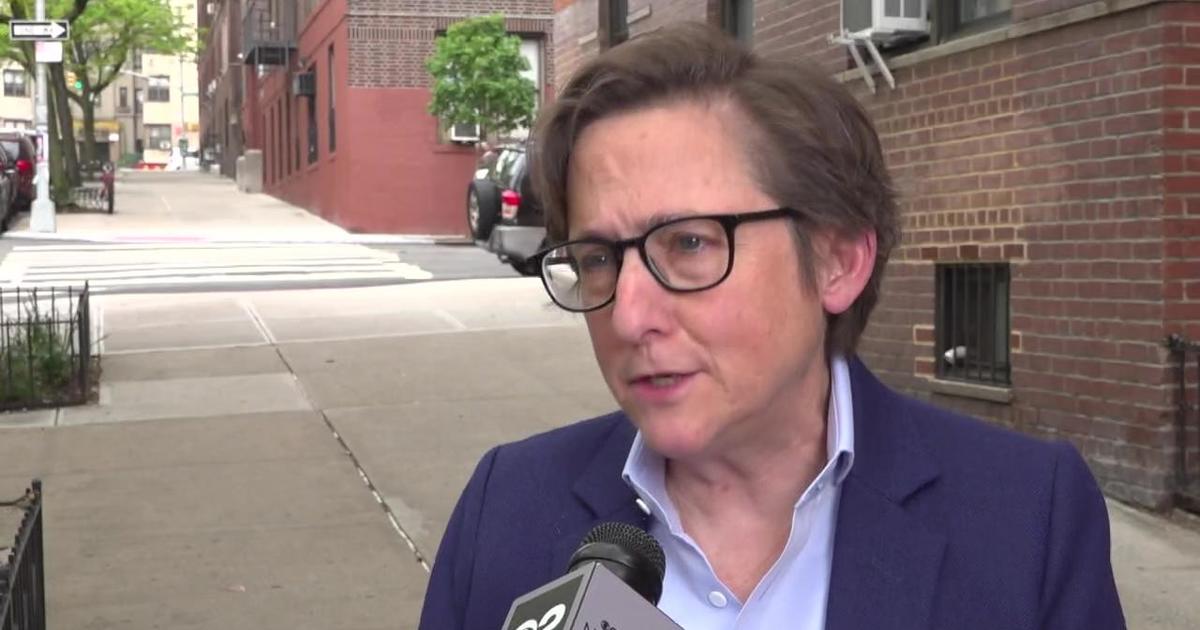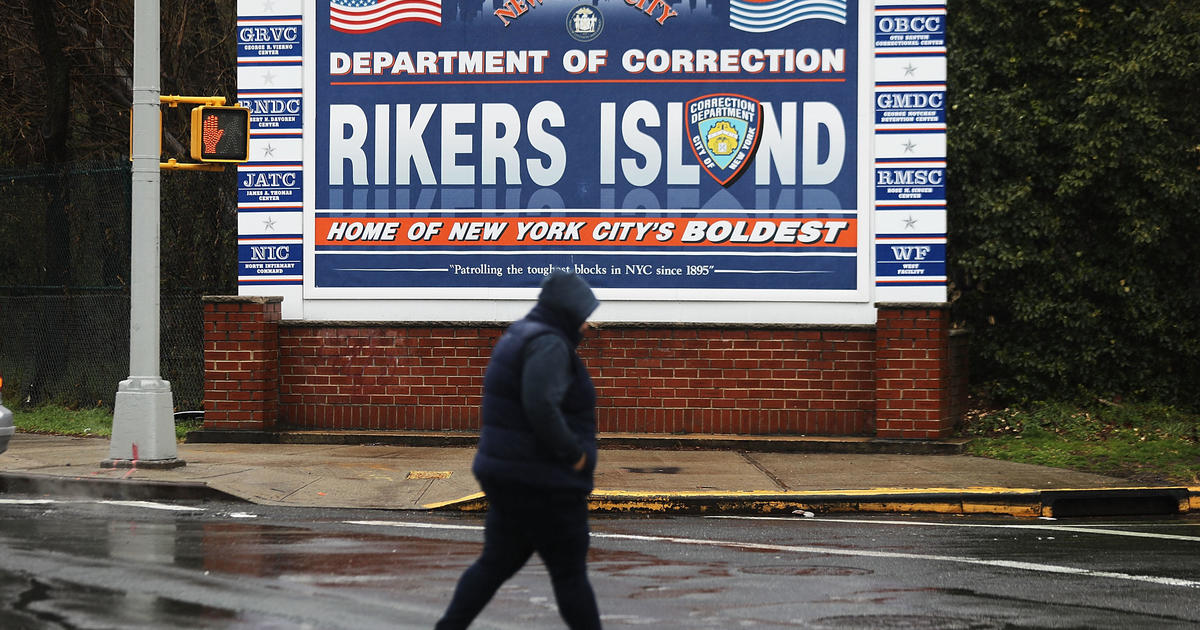Jury Deliberating In Case Of Therapist Meat Cleaver Killing
NEW YORK (CBSNewYork/AP) - No one denies he's a killer, but jurors will be asked to decide whether a mental patient who hacked a psychologist to death with a meat cleaver was a calculating criminal or a man too delusional to know right from wrong.
Jury deliberations have begun in the murder trial of David Tarloff. The jurors have asked to review nearly everything in evidence while weighing the case.
His defense team has argued that he was legally insane when he killed psychologist Kathryn Faughey in February 2008.
His attorney told the jury that the proof that he was crazy was in his deranged plan to steal $40,000 from his former psychiatrist, who shared the office with Dr. Faughey.
Jury Deliberating In Case Of Therapist Meat Cleaver Killing
As WCBS 880's Irene Cornell reported, he wanted the money to free his mother from a nursing home and take her to Hawaii.
Prosecutor Evan Krutoy made the case that Tarloff knew what he was doing and knew that it was wrong.
He argued that Tarloff carefully planned the crime by packing knives, the cleaver and extra clothing in his suitcase and then fled after the murder and the attack on the psychiatrist and was able to get away without leaving a trail of blood.
Tarloff doesn't dispute killing Faughey in February 2008 as he tried to carry out a weird robbery plot targeting her officemate. He's pursuing an insanity defense, which means jurors must decide whether he understood the consequences of his actions well enough to be held criminally responsible.
Defense lawyer Bryan Konoski called it a case of "an insane plan by an insane man who was legally insane when it happened.'' But the Manhattan Assistant district attorney said Tarloff's conduct showed "a level of craftiness (and) a level of deceit'' that show he knew what he was doing.
"Mental illness plays a role in this crime, clearly. The question is wrongfulness,'' Krutoy said.
About a dozen of Faughey's relatives lined rows of courtroom seats as the case, delayed for years because of Tarloff's psychiatric problems, neared its end. Tarloff, who has a history of courtroom outbursts, shifted in his seat and rubbed his face with his hands but listened quietly.
Tarloff, 45, has been in and out of psychiatric hospitals for more than two decades. Years of medical reports trace out his delusional world: He has said he hears voices, believes he's the Messiah, talks to God and has seen God's eye in tables and floors.
Convinced that his mother was suffering in a nursing home, Tarloff hatched what he saw as a scheme to save her.
He decided he would find a psychiatrist who'd had him committed in 1991, hold up the doctor for his ATM code, withdraw $40,000 or more, grab his mother out of the home and run off with her to Hawaii, he told authorities.
He had never met Faughey, 56, who shared an office with the psychiatrist he targeted, Dr. Kent Shinbach. Faughey encountered Tarloff first and confronted him. He slashed her 15 times, later telling authorities he thought she was evil and believed she'd attack him. Shinbach came to her aid and was seriously injured.
Tarloff prepared for his plan, making a series of phone calls to find out where Shinbach's private office was and what hours it kept, buying knives and a meat-pounding mallet and arriving with a suitcase of adult diapers and clothes for his mother. He fled afterward; police ultimately found him by matching fingerprints from the crime scene to prints taken from him a few weeks earlier, when he was arrested on charges of punching a security guard at a hospital where his mother was being treated.
Prosecutors said Tarloff's preparations, actions and escape show he was cognizant that he was doing wrong and breaking the law. After taking Shinbach's wallet, Tarloff spotted the doctor's address, threatened to kill his family and gave him a fake name, Krutoy noted.
"It's cold, it's calculating, and he's able to do it,'' the prosecutor said. "Was there anything that evidence psychosis? Not a single thing.''
But defense lawyers said the strange plan shows how disconnected Tarloff was from reality, and his conviction that God approved it illustrates the depths of his delusions. Konoski said Tarloff had, "at best, surface capacity'' to recognize the wrong he was doing.
"There may be appearances of rationality when you break it down to its minutia,'' Konoski said. But ultimately, "there is nothing about this case that is rational or makes any sense.''
The jury would have to find that Tarloff did not understand he did anything wrong in order to issue a not guilty verdict, Cornell reported.
If convicted, Tarloff could be sentenced to life in prison. If his defense succeeds, he will be acquitted but held in a mental hospital until -- if ever -- doctors and a judge decided he was well enough to go free.
(TM and © Copyright 2013 CBS Radio Inc. and its relevant subsidiaries. CBS RADIO and EYE Logo TM and Copyright 2013 CBS Broadcasting Inc. Used under license. All Rights Reserved. This material may not be published, broadcast, rewritten, or redistributed. The Associated Press contributed to this report.)



